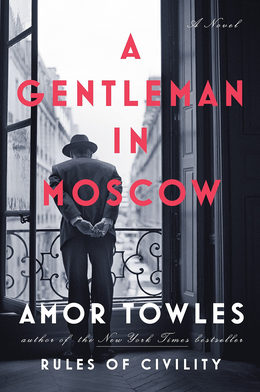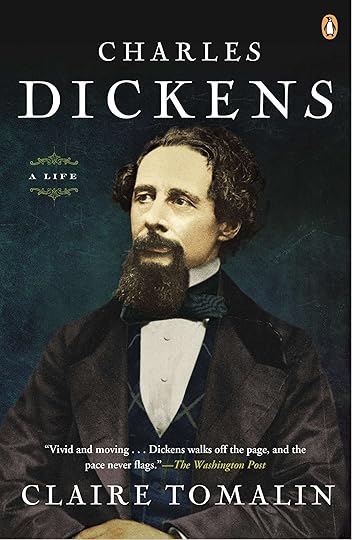It’s been a while since I’ve done a round-up of the books I have read, so here’s what has been keeping me entertained, inspired and amazed the past few months. As always, it may appear that I love every book I read, but that’s hardly the case. I just choose not to mention the books I didn’t love or couldn’t finish, because there are enough bad reviews in the world. So let’s concentrate on what I really enjoyed!

I loved Moreno-Garcia’s vampire novel Certain Dark Things, so I was excited to read her take on the Maya gods. Set in Mexico in the 1920s, the book follows Cassiopeia Tun, the ‘poor relations’ granddaughter of a small town patriarch in the Yucatan. Cassiopeia’s mother disgraced the family by eloping with Cassiopeia’s dark-skinned father, then had no choice but to return to her family when her husband died. Now Cassiopeia is forced to work as the family maid, while her arrogant cousin Martín misses no chance to boss her around and get her in trouble. Cassiopeia’s future seems hopeless and bleak until in a moment of defiance she opens a locked chest in her grandfather’s bedroom, and releases an imprisoned Maya god of death, Hun-Kame. Formerly the king of the Maya Underworld, Xibalba, Hun-Kame was overthrown by his treacherous twin brother Vucub-Kame, who charged Cassiopeia’s grandfather with guarding the box that held Hun-Kame’s bones. As extra insurance against Hun-Kame’s return, Vucub-Kame also took bits and pieces of his brother — an eye, a finger, a necklace — and scattered them across the land so Hun-Kame could never be whole again even if he somehow escaped. Hun-Kame rises from his prison neither man nor god, but determined to reclaim his throne. He enlists Cassiopeia as his comrade-in-arms, and the two set off across Mexico to restore Hun-Kame by finding his missing bits. Meanwhile, Vucub-Kame recruits Cassiopeia’s repugnant cousin Martín to stop them. The quest narrative is marvelous, with demons, evil spirits, sorcerers and flappers dancing the Charleston. The romantic tension is electric between Cassiopeia and her god of death companion, who cannot possibly feel love (or can he?) What I especially loved is Moreno-Garcia’s refusal to offer easy solutions, or to cast any of her characters as completely good or evil. We come to understand everyone’s motives, and to feel sympathy for the devil (or at least the gods of Xibalba). This is a delicious novel with Maya mythology seamlessly interwoven into a Jazz Age love story adventure.

I’m not sure why I picked up this book. It just sort of found its way into my hands. A historical novel set in Moscow from 1918 through the 1950s, it follows Count Alexander Ilyich Rostov, a cultured and well-educated Russian nobleman who rushes back to his country in the early days of the Revolution, only to narrowly escape the firing squad and get sentenced to life imprisonment within his hotel, the Metropol. He is given this small mercy only because he once wrote a poem that some Bolsheviks consider to be proto-Revolutionary, and because Rostov himself never took sides in the conflict. A novel spanning decades with the action all confined within one building might sound claustrophobic, but not in Towles’ hands. He brings the world to the Metropol, and gives us a fascinating look at the changes in Russia from the early days of Lenin through the Stalinist era and into the Cold War under Khrushchev. Rostov makes the unlikeliest friends: high Party members, CIA operatives, scholars, movie stars, and a precocious girl named Nina who ‘adopts’ him and shows him all the back corridors and secret rooms of the hotel which she has explored. Though this is not a fantasy novel, it reminded me of C.S. Lewis’ Narnia, because Towles manages to contain an entire world in a building. In fact, there is literally a secret passage in the back of a wardrobe, which Rostov uses to good effect. It is a novel of humorous vignettes and deft character studies, held together by the reader’s constant concern for Rostov’s safety. In the tumultuous U.S.S.R., almost no one is safe. A hero one day can be shot as a traitor the next. How can our friend the Count possibly have a happy ending? Is he, in fact, as one friend proclaims, the “luckiest man in Russia” because he is confined to the Hotel Metropol? I won’t give away the ending, but I found the book sweet, satisfying, touching, and surprisingly funny. Towles is a consummate storyteller.

You think I torture my characters? Pffft. I am a rank amateur compared to R.F. Kuang! Set in an alternate Asia and inspired by the Opium Wars and 19th Century colonialism in China, The Poppy War is the story of Rin, a small-town orphan whose only chance to escape poverty and an oppressive arranged marriage is to score top marks on the government’s exams and earn a place at Sinegard Academy, where the Nikara Empire’s best and brightest are trained for leadership. Imagine a combination of West Point, Oxford and Hogwarts, and if that sounds intriguing, it is! Just don’t get too attached to the place, because Rin’s training at Sinegard is only the beginning of our story. Nikara (think Qing dynasty China), a vast but disorganized empire with out-of-date technology and many warring internal factions, is on the verge of war with its old nemesis the Mugen Federation (think Imperialist Japan). Rin and a few other ragtag misfits with an aptitude for shamanist magic may be the only secret weapon that can stop Mugen from completely destroying their homeland. The problem is the type of magic Rin summons cannot easily be controlled. It could drive her crazy, take her over completely, or, you know, possibly start Armageddon. But other than that, I’m sure everything will be fine!
Not really. Though the beginning of the book may read like the fantasy narrative we all know and love — obscure girl goes through training to discover she is the Chosen One — Kuang subverts that narrative and quickly turns our expectations upside-down. She shows us how sinister a training academy can be, how it can be used for nefarious purposes, and how easily the teacher-student relationship can turn abusive and traumatizing. Who are the good guys here? Are there any? Kuang gives us no easy answers, but she lets us feel sympathy for our young protagonist Rin and her comrades. The cruelty and horror of war are vividly described, so be prepared for violence — graphic and awful, but entirely appropriate to the narrative. The big question becomes what Rin will choose. Is victory worth the price of her soul? No one is spared in this book. Everyone is beat up, orphaned, traumatized, killed, gravely injured, driven insane, dehumanized, abused and/or tortured. I loved it! I mean . . . I didn’t love the horrors described, or the vast amount of suffering, but the stakes were real, the story was grimly compelling, and the characters stayed with me long after I finished the book. Highly recommended. Now I am going to take a deep cleansing breath and prepare myself for more painful enjoyment (enjoyable pain?) in Kuang’s two sequels!

I bought this book as soon as I read the premise, and the novel exceeded my high expectations. What happens to all those children in fantasy novels who come back from fantastic worlds — when Lucy emerged from the wardrobe, or Alice from the looking glass, or Max from the Land of the Wild Things? Surely that’s got to be a traumatic re-entry into mundane reality. Every Heart a Doorway takes that idea and runs with it, introducing us to Miss West’s Home for Wayward Children, where such young folk are given a safe place to recover and recuperate after their otherworldly experiences. Some of the children have been to lands of order, some to lands of chaos, some to dark, some to light. But all have been kicked out and forced to return home, and now they long to return to their fantasy realms. Miss West tries to console them, and convince them to accept the grim reality that they can never return. The home is part school, part orphanage, part addiction recovery center. Each child has been permanently marked and changed by their experiences. Our protagonist Nancy still yearns for her time in the realm of the dead, where everything seemed more peaceful, more ordered, more comfortable. She misses the silence and the shadows. She knows the lord and lady of death would welcome her back, if she could just find the way. Then, shortly after Nancy’s arrival, children at the school begin to be brutally murdered. Who is the killer, and why are these deaths happening? The story is poignant and sweet — a breath of fresh air in the fantasy genre, while also serving as a great mystery. It is a short read, but powerful, and I especially appreciated the way Nancy was represented as romantic asexual. I just don’t see many characters like this in fiction, and I found her portrayal believable and well-done. I am glad this book is the beginning of a series!
 newest »
newest »
 newest »
newest »
 I really enjoyed your thoughtful and entertaining reviews, thank you! I also agree that there are enough bad reviews in the world and it's much more inspiring to share those things that moved you in a good way. So many fantastic books out there to read...
I really enjoyed your thoughtful and entertaining reviews, thank you! I also agree that there are enough bad reviews in the world and it's much more inspiring to share those things that moved you in a good way. So many fantastic books out there to read...
 Some of these sound really interesting, but I noticed some of the covers here don't match the book being described, so I followed the link to the website which has the whole post. So an FYI to people reading: This Goodreads post is missing several parts. Follow the link to the website to see the full post.
Some of these sound really interesting, but I noticed some of the covers here don't match the book being described, so I followed the link to the website which has the whole post. So an FYI to people reading: This Goodreads post is missing several parts. Follow the link to the website to see the full post.
 Great reviews. Curious why the book cover for Priory of the Orange Tree is posted beside the review for Gods of Jade and Shadow. Loved both of these and looking forward to In the Woods, thanks to your review.
Great reviews. Curious why the book cover for Priory of the Orange Tree is posted beside the review for Gods of Jade and Shadow. Loved both of these and looking forward to In the Woods, thanks to your review.
 I love the variety in your choices. I, too, have been recommending A
I love the variety in your choices. I, too, have been recommending A 








